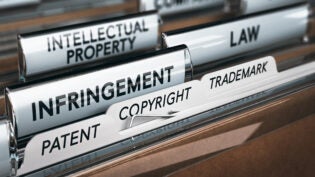5 Business Liabilities That Can Cause You A Ton Of Trouble
By: Jeremy Bowler

Unless you’re running a sole proprietorship or an S corporation, chances are good that you need to file some sort of business entity paperwork to protect your personal assets from the liability risks inherent in operating a business.
Business liability is one of those things that most small business owners tend to think about only after they’ve been sued or have had their business destroyed by an uninsured risk. Unfortunately, many small businesses go out of business because they didn’t protect themselves with the right type of business liability insurance.
If you are starting a new business, it might seem like there are lots of things to take into consideration and address before you can get going and sell your goods or services to the marketplace.
However, there are really only five things that are essential for any company no matter what kind of company it is or what its goals are:
 Photo by Roman Melnychuk on Unsplash
Photo by Roman Melnychuk on Unsplash
Proper Identification of Owners and Employees
Your business insurance policies are based on the risk assessments by your insurance company. Your insurance company will do a background check on you and your employees, and they’ll perform risk assessments to determine the amount of coverage they are willing to provide to protect you and your business.
If you want to obtain coverage in the first place, let alone at a reasonable price, you must be honest and open about who owns the company, who the key employees are, and what their job duties are. If you’re not honest about who owns the company and who the key employees are, your insurance company may discover the truth and cancel your policy. Fraudulent business information and/or material omissions on your insurance application can be treated as criminal acts. If you are caught, you will be committing a felony, and all of your assets will be at risk.
Proper Identification of Your Company
Your company name is the first thing that people see when they come into contact with your business. Your company name is also the first thing that potential customers see when you advertise your business. The name of your company could turn out to be your biggest asset or a huge liability. If your company name is confusing or misleading, people might choose your competitors instead of you. If your company name is confusing or misleading and the public mistakenly believes that you have a connection to another company, your competitors could sue you and win a judgment.
In addition, the other company could collect on the judgment against you. If your company name is the same as another company’s name, your customers could mistakenly believe that you are connected with the other company. This could lead to legal problems, as well as reputational problems.
Asset Protection
The biggest danger to your personal assets from the liability risks of operating a business is the company assets. Assets include everything from office equipment, furniture and fixtures, vehicles, patents, trademarks, and other intellectual property, and of course, cash in the business bank accounts.
If you or your employees cause an injury or damage to another person or their property, the injured person can come after your company assets to collect for their injuries. You can protect your assets from being used to pay for claims against your business by using a business structure that protects your personal assets from company liabilities.
There are a number of business structures that offer asset protection advantages. Depending on your state, you can create limited liability corporations (LLCs), trusts, or other types of entities that protect the personal assets of the people involved in the business.
Liability Insurance Coverage
All businesses, big and small, need to carry appropriate levels of liability insurance. Without adequate coverage, any business could be put out of business by even a single lawsuit. Even if the business wins the lawsuit, the time, effort, and money it takes to defend the suit could sink the business before the courts ever reach a verdict.
If you don’t have enough protection in place, you could be forced to close your business because you can’t afford to pay a single claim. If you do have enough protection, it means you can settle claims and continue to operate your business. Before you start marketing your business, you should know how much commercial liability insurance you need. Your business insurance agent can help you determine the right amount for your situation.
More Advanced Protections
As your business grows, you may want to take additional steps to protect your company and its owners and employees. Additional protections can include directors’ and officers’ insurance, fiduciary insurance, and employee death and disability insurance. Directors’ and officers’ insurance (D&O insurance) helps protect company executives from being personally sued for making bad decisions that cause injury or loss to others.
For example, a business owner might be sued for making misstatements in a financial report or for refusing to pay a valid claim. D&O insurance is often used in businesses that receive investment money from outside sources like venture capitalists, banks, and stockholders.
Fiduciary insurance protects trust departments of banks and other financial institutions that have fiduciary obligations to their clients. Fiduciary insurance protects the companies that provide record-keeping, accounting, and auditing services for banks and other financial institutions. Employee death and disability insurance provides coverage for dependents if a company employee dies or becomes disabled and can no longer work.
Conclusion
As you can see, there’s more to running a successful business than just having a good product and a sound marketing strategy. You also need to protect your company and its owners and employees from the liabilities that could arise from operating a business in the real world. If you take these 5 tips into consideration when you are first starting your business, you will be far ahead of the game in terms of protecting yourself, your company, and your assets. Click here if you’re interested in learning more on how you can mitigate today’s biggest risks to business.
2405 Views












